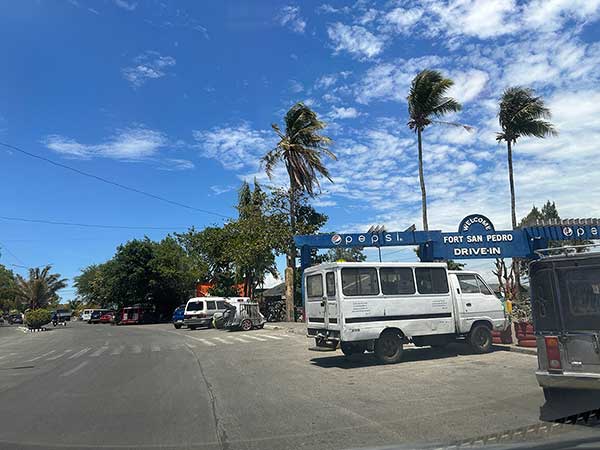
By Joseph Bernard A. Marzan
Iloilo City is set to amend its current paid parking ordinance, City Regulation Ordinance No. 2023-031, to exclude national roads following clarification from the Department of Public Works and Highways (DPWH).
The DPWH identified four roads—General Hughes Street, Arroyo Street, Fort San Pedro Drive, and Timawa Avenue—as national roads, where the city government lacks authority to enforce parking fees.
Councilor Sedfrey Cabaluna, chair of the city council’s transportation committee, confirmed the upcoming amendment on Wednesday, May 8.
Cabaluna explained that due to the ordinance’s separability clause, parking fees collected on these roads could not be enforced and would ultimately be removed from the ordinance to prevent confusion.
“In a separability clause, everything that contradicts a national law or is found invalid should not be implemented. We should only implement the valid parts. So, when we heard that there were issues [with the roads], I called Ms. Maricel [Mabaquiao] […] We decided to just meet with [Iloilo City Mayor Jerry Treñas] first [on Thursday] to initiate the removal,” Cabaluna told reporters.
“On our end, because we are in legislation, we will just clear that up. We have a separability clause that should operate naturally, but to avoid confusion, we should just remove [the roads from the ordinance] entirely,” he added.
He further clarified that parking fees collected on these streets since January will remain with the city, citing the principle of presumption of regularity which assumes that official actions are legally proper until proven otherwise.
The Supreme Court, in multiple cases, describes the presumption of regularity as a legal principle that provides that officials are presumed to do official duties as authorized under the law.
“At this stage, if our collectors were in good faith, it is presumed regular until it was pointed out that it is not. If they continue [to collect] despite everything, then there would be malice involved. That is something that we need to check, how much was collected,” Cabaluna added.
Despite the amendment, the city will continue to prohibit parking on these roads as part of its anti-on-road parking measures.
Mayor Treñas defended the ordinance’s original intent, emphasizing its role in maintaining order and not as a primary income source.
He also issued an apology for any inconvenience caused by the ordinance’s implementation, offering a personal refund to a taxi driver affected by the fees.
“The main reason for paid parking in all jurisdictions all over the world is the maintenance of order in the streets. Income is only secondary. If indeed there was a mistake in the implementation of the parking ordinance, I am prepared to personally refund the 30 pesos collected by our parking attendant from the taxi driver. I also apologize to our constituents for the uproar that it has caused them,” the mayor said in a statement on Wednesday.
Maricel Mabaquiao, head of the Local Economic Enterprise Office, mentioned that they had ceased collecting fees on the identified national roads after the oversight was addressed.
She noted that since the ordinance’s implementation, daily collections had ranged from P39,000 to P40,000 across all designated streets but had decreased recently due to reduced traffic with the lack of physical classes at PHINMA University of Iloilo.





















